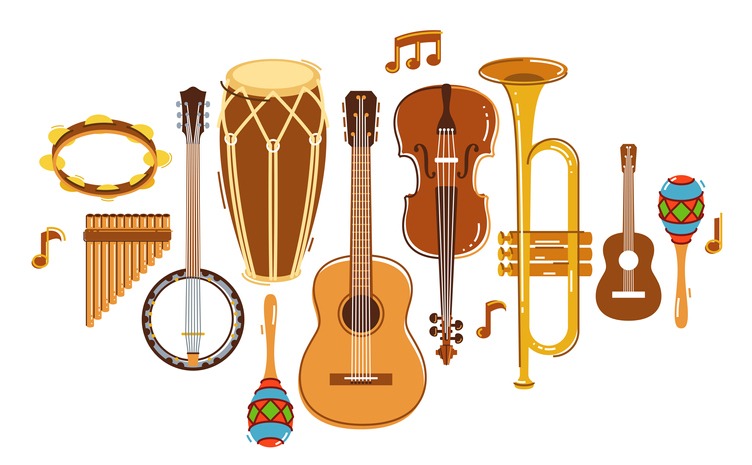
Studies have shown that playing an instrument can benefit your cognitive abilities and memory, with positive effects both in the short term and long term – find out more below
CREDIT: This is an edited version of an article that originally appeared on The Art of Healthy Living
Not only is playing an instrument a great way to challenge yourself mentally, but it also provides countless opportunities for creativity and personal expression. From developing hand-eye coordination to enhancing language ability, deciphering music creates a wide range of advantages for all ages. Here’s more on how mastering instrument play can help improve cognitive skills such as attention span, pattern recognition, problem-solving, and mental agility–all while having fun!
The Benefits of Music On Cognitive Functioning
Music has been known to have a significant impact on our emotional and mental states. But did you know that music can also enhance cognitive functioning? Studies have shown that listening to music can improve our attention span, memory retention, and overall cognitive performance.
Moreover, learning to play an instrument or singing in a choir can lead to increased executive function and efficient neural processing. These cognitive benefits can be observed in individuals of all ages, making music an accessible and effective tool for cognitive development.
Whether it’s guitar lessons in Singapore or violin practice in New York, it’s never too late to start playing an instrument and reap the benefits. When you become involved in music, it’s like engaging in a form of mental exercise that’s both fun and challenging.
The Types of Instruments and How They Affect Cognitive Processes
Music can be a powerful tool when it comes to enhancing cognitive performance and brain development. People have been playing instruments for centuries, and the different types of instruments have distinct effects on our brains.
For instance, playing the piano requires the use of both hands, which helps to develop hand-eye coordination and motor skills. Similarly, wind instruments, like the clarinet or saxophone, require controlled breathing and lung capacity, which have been shown to improve respiratory and cardiovascular function. Percussion instruments, such as drums and cymbals, can help with focus and attention as they require good timing and rhythm.
Overall, playing an instrument can benefit the brain in multiple ways, and it’s worth exploring the different types to see which one works best for you.
Tips For Starting or Continuing Instrumental Practice
Starting or continuing instrumental practice can be both exciting and daunting. However, with commitment, perseverance, and the right mindset, you can achieve great success in playing an instrument.
Firstly, establish your long-term and short-term goals. This will give you a clear direction on where you want to go and the steps to take to get there. Find a private teacher or join a group class to get structured learning and regular feedback. Consistent practice is necessary to progress, so plan fixed times for practice and stick to them.
Also, break down complex pieces into achievable parts to avoid getting unenthusiastic. Lastly, remember that playing music is a rewarding experience and to celebrate your achievements, big or small. Keep pushing yourself and enjoy the journey.
The Impact of Musical Training on Brain Plasticity
From learning an instrument to singing in a choir, musical training has been long associated with strengthening one’s cognitive abilities. Recent studies have shed even more light on this correlation, revealing that music education can actually alter the structure of the brain itself.
Researchers have found that, through regular practice and exposure to music, certain areas of the brain responsible for processing sound, language, and memory can become significantly larger and more connected.
What’s more, these structural changes can last well into adulthood and even help offset the effects of aging, ultimately leading to improved cognitive function, better language skills, and enhanced emotional processing. It’s clear that the impact of musical training on brain plasticity is not something to be underestimated.



Be the first to comment